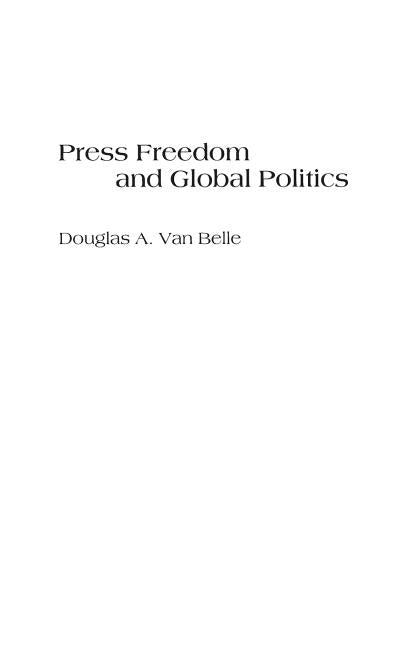Douglas Van Belle
Press Freedom and Global Politics
Press Freedom and Global Politics
Couldn't load pickup availability
Share
Van Belle provides the first systematic analysis of the effects that press freedom has on the conduct of international politics. The institutionalization of press freedoms within a state and the free flow of information between the free presses of different nations creates a foreign policy decision making environment that systematically limits policy options, generates domestic political imperatives, and provides specific benefits to a leader. This shapes some aspects of foreign policy in a consistent and empirically identifiable manner, most notably by limiting international conflicts.
When social-psychological propositions regarding dehumanization and the acceptance of killing in war are introduced to Van Belle's model, shared press freedom is shown to provide a mechanism that prevents lethal conflicts. The effects of press freedom on international conflict, particularly on hypotheses related to escalating conflicts beyond the threshold of casualties, are quite robust. However, Van Belle indicates there is no evidence of a complimentary effect on cooperation. The combination of findings from the empirical analyses suggest that the key to the effects of press freedom center on the creation of images, such as the dehumanized image of an enemy. A thoughtful analysis that scholars and researchers of foreign policy and international relations as well as journalism and mass communication will find particularly useful.
Binding Type: Hardcover
Author: Van Belle, Douglas
Published: 04/30/2000
Publisher: Praeger
ISBN: 9780275967901
Pages: 184
Weight: 0.91lbs
Size: 9.46h x 6.08w x 0.77d


